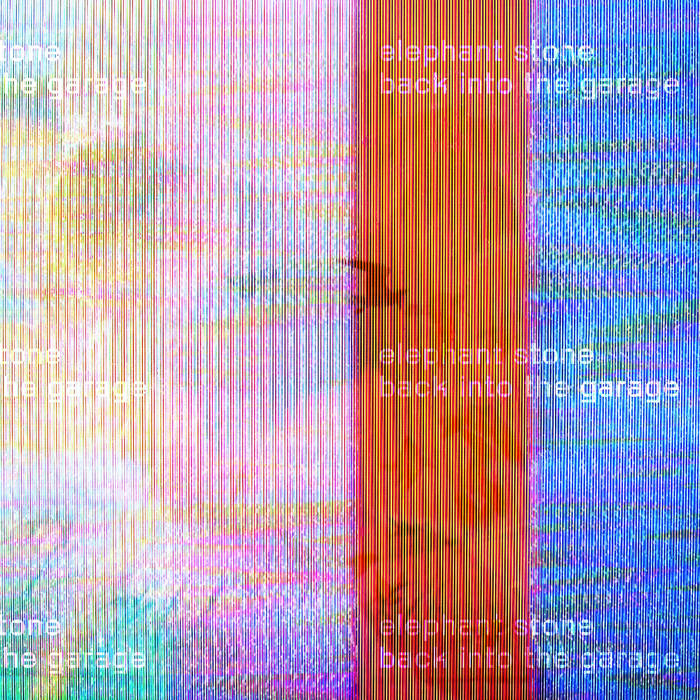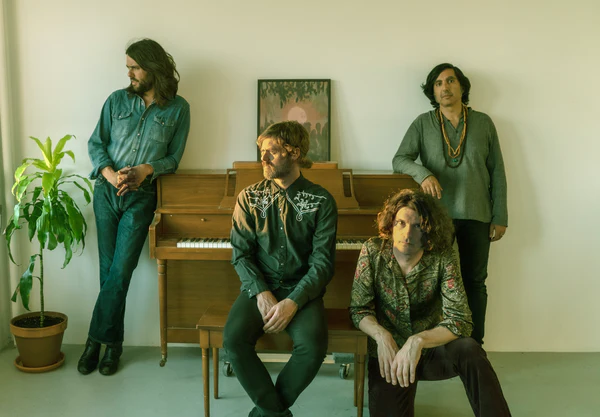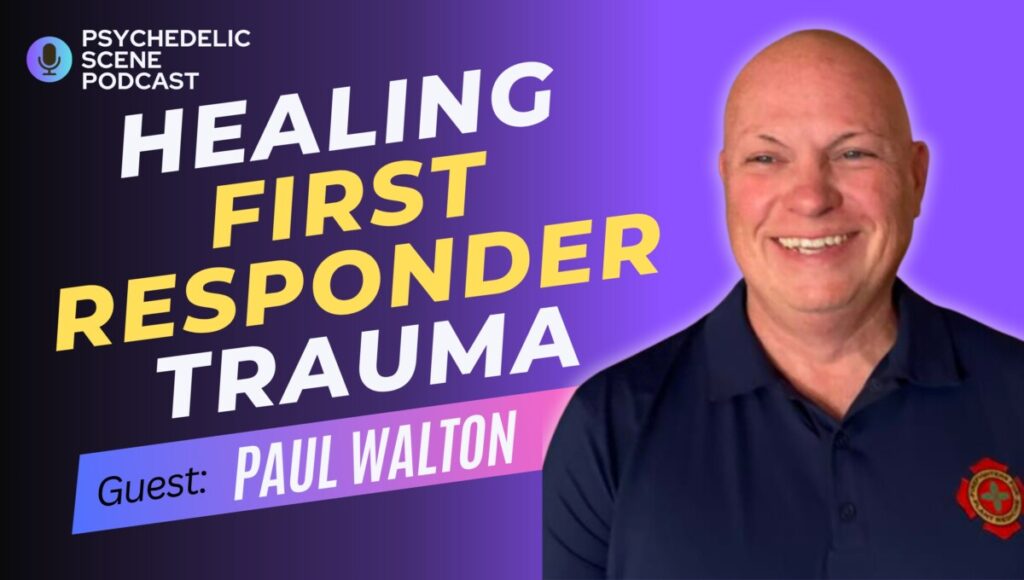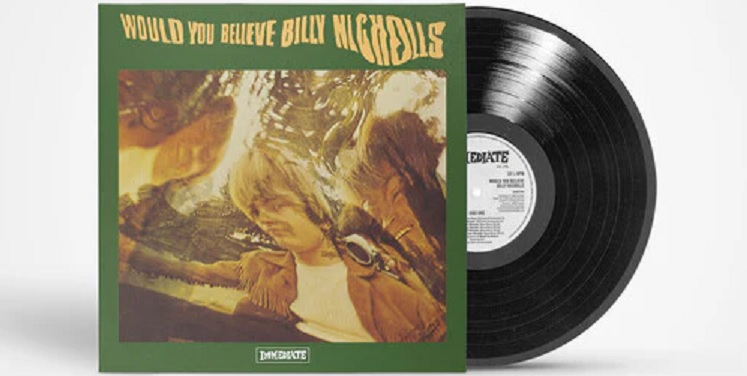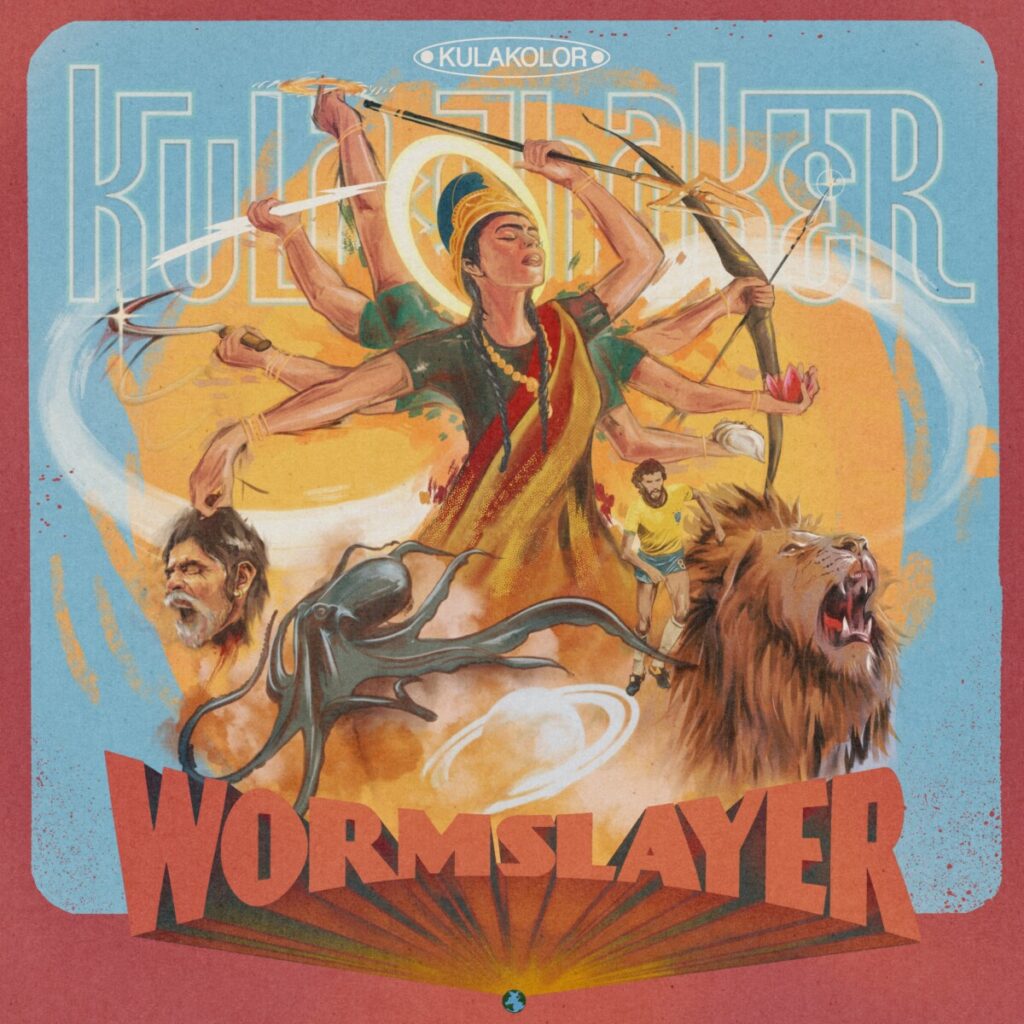Interview with Rishi Dhir of Elephant Stone
Interview with Rishi Dhir of Elephant Stone
LeValley: Hello! I’m Jason LeValley with Psychedelic Scene, and I’m here today with Rishi Dhir, of the band Elephant Stone, who just released a 3-song EP called Back into the Garage. Rishi, thank you for being here today with me.
Rishi Dhir: Thank you. Thank you. It’s actually Rishi ‘Deer’.
LeValley: Oh, it’s pronounced ‘Deer’.
Dhir: Yeah, you’re saying it like a C drive or something… like a DOS program.
LeValley: Yeah, I’m not so good with Indian surnames.
LeValley: Anyhow, last year Elephant Stone released an album, called Back into the Dream which made my list of the 10 Best Psychedelic Rock Albums of 2024. And you’ve released an album of demos, or is it an EP, or what would you call it?
Dhir: Yeah, I mean, it was originally just demos. And then I sent it over to Mike from Little Cloud Records. He’s like…We’ve been working together for a few years now. He’s become my label in some ways, and Mike heard “Edge of the Deep Blue Sea”, and he’s like, ‘why wasn’t this on the album?’. I was like, ‘I don’t know’.
Dhir: And then he heard “Revival” and the other songs, and then he’s like, “Well, let’s put something out. Let’s just not make it a demo. Let’s actually put out a 7 inch.” So, yeah, I mean, these are like songs that I recorded at home, usually, like my writing process is all demo songs at home. Listen to it, live with it, and then I’ll start working on it with a band, and those three songs just didn’t kind of make the cut for me at the time.
Dihr: So now, with a year later, I was kind of like. These songs are actually pretty great, and it has this charm, this kind of…It sounds kind of like it just sounds rough and not amateur per se, but it’s all me. It’s just me playing everything, and I’m not that great at anything really. So as charm, though, I think, yeah, it’s nice. I guess it’s a 7 inch. But on Bandcamp, it’s like a full album in some ways.
LeValley: Well, is it just 3 songs, or did you? Is it 3 songs, plus demos of songs that are on the Back into the Dream album?
Dhir: Well, yeah, the official release on Spotify, and the 7 inch is just 3 new songs, but on Bandcamp I also threw up seven demos of songs that were on Back in the Dream.
Dhir: And It’s cool just for people to see how things evolve to like a song like “Lost in a Dream”. I remember when I demoed it. Like it didn’t have the middle-8 part that I threw in later or solo. It was just like, it’s cool. It’s just neat to see how a song could be interpreted in different ways and how it changes over time.
LeValley: Cool. So it’s called Back into the Garage, and it’s available only in digital format. Is that correct?
Dhir: Oh, no, it’s there’s a 7 inch as well that has the 3 new songs.
LeValley: Okay. Alright, yeah, very cool.
LeValley: Well, 20 years ago I used to listen to this CD that I had quite a bit. I really liked it, called War of the Wakening Phantoms by a band called The High Dials. And then I noticed doing research that you played with them.
Dhir: Yeah, yeah. I started that band with Trevor back in 2003. We were. Yeah. I’ve been doing this a long time, Trevor and I, the main songwriter in the band, we were playing together since 1995. We played together for about 11 years and then I just got yeah. I had like… I just got burnt out. I had an existential crisis like I was done with rock and roll. Like we threw it a lot back in those days, and I kind of gave up.
LeValley: So, you were on that album then.
Dhir: Yeah, yeah, yeah. I was on the first two and a half. I quit during the 3rd album.
LeValley: Okay.
Dhir: Moon country. Yeah. I left the band during that phase.
LeValley: Oh, well, that’s really cool that you’re on that album.
Dhir: Yeah, that was a great record. I mean, that was we toured a lot back. Then I remember on that album my wife and I. We got married the day after we flew to the UK with the band, and we were supporting the Brian Jonestown Massacre. This is in 2006. So it’s like this was in support of War of the Wakening Phantoms as well. So we were. My wife came along for the two week tour of the UK with BJM and stuff. So it was interesting.
LeValley: All right. Well, not long ago I learned that you play with another group called MIEN with Alex Maas of The Black Angels and members of The Horrors, who I also really like, and The Earlies. It’s essentially a neopsych supergroup.
Dhir: Yeah.
LeValley: I don’t understand how that album that was released in 2018 could be so far under the radar.
Dhir: Yeah, I know it’s funny. I was talking about it with my wife yesterday, because MIEN, we have a new album that’s coming out any in the next few months and we’re just talking about the first record. And I’m like that first record. She’s like, “That first record’s really good.”
LeValley: It IS good. I know.
Dhir: It’s a great record, I know, and it’s just… I don’t know. It was put out at a weird time. I think. I don’t know, I don’t. Who knows how these things work? I mean, you think you have all your ducks in a row, and you think you have a great record, but…
LeValley: Was there a publicity machine that was supposed to be, you know, putting out the word?
Dhir: Yeah, we were signed to Rocket Recordings. Chris Reeder. It’s great label. They have Goat on that label.
Dhir: And yeah, and they did a great job. But I don’t know. I really don’t know what it was.
Yeah, I mean, we’re gonna take two. We have a new record coming out, so we’ll see how that goes. Yeah.
LeValley: How did that aggregation come together?
Dhir: It’s funny enough. It actually goes back to me being in The High Dials.
Dhir: This was in 2,000, like I met Alex. The High Dials were supporting the Brian Jones Massacre during South by Southwest. I met Anton in 2003 in Ontario. We played a festival together, and he was a fan of The High Dials, and we became friends. And so, this is before Dig. So, we were touring with BJM. We were supporting them to like 20 people, you know. There’s no one at shows back then, or 200 people in Toronto. That was the big show they’d play on. And so we did a South by Southwest with them in 2004 playing all these venues on 6th street.
Dhir: Do you know, like BJM was still an underground band, and I remember at this one gig,
I ended up talking to these two guys who were in the back of the room about… They were like, “Hey, man, you play sitar”. When we started with (Who Killed) Sgt Pepper, it was Alex and Christian from The Black Angels. They were like, Yeah, we’re starting a band and stuff like that. And we love the Velvet Underground. So we became friends there, and we kept in touch, and we play shows together. And so that’s how I met Alex. And then I think the next year, The Earlies, put out a record. These were The Earlies. I was a huge fan of that record, and so The High Dials actually ended up supporting them in New York. Then we actually, when I talked about the honeymoon tour I did with BJM, the first show was actually with, do you remember the band Midlake?
LeValley: Midlake. Yeah, I’ve heard of them.
Dhir: Oh, great! They put out this great record in 2004 or 5, I think The Trials of Van Occupanther. I think they’re from Denton, Texas. Phenomenal record– like it’s a classic album. Anyways, we played a show with Midlake and The Earlies in Manchester and that’s when I met John Mark, and we kept in touch and then fast forward seven years later in 2011, or something like that, I was in The Black Angels. For a year, I was there touring. I was touring with them. I was playing bass and sitar, and we did a West Coast tour and Coachella with The Horrors. It was right after The Horrors put out Skying, which I was a huge fan of that record as well, so.
Tom and I became fast friends, and so what I was doing I was like, in The Black Angels
I was recording with JM. I was recording with Tom, so I was sending sitar tracks back and forth.
And then at one point I was like, ‘Huh!’ I was like, ‘Why don’t we all do something together? Because JM and I had a song but no vocals.
So I asked, Alex, I’m like, ‘Do you want to try singing on this and see what you can come up with?’, because we all…JM met Alex when we played in Albany, or Buffalo, or something. So, anyways, and that was “Black Habit”.
So Alex sang. That was the first song we did. Then Tom came in, and so it took a few years later until the first record. So each record takes about five years to make for me.
That’s a long story. Sorry.
LeValley: That’s all right. You mentioned the sitar, which you’re known for playing. Can you share the story about how you started playing that?
Dhir: Back in ‘97, I think. I went on a family trip to India, and I bought a sitar when I came back. I wrote one song with The High Dials off of our first album or a song called “Things Getting Better”. That was like my sitar composition. I did that before I was trained on it.
And then, and then I kind of hit a ceiling
At that point I just didn’t know what to do with it. Then I. I found my teacher, Uwe Neumann, in Montreal. German guy– looks like Charles Manson. He studied in India. He did his master’s in Sitar, in India, for 10 years. Phenomenal sitar player. Great person. So, in 2000 I became his student, and I took lessons for about 20 years. All through my twenties I was taking lessons, and I got better at it. And now it’s just become kind of my trademark.
LeValley: Okay, cool. You’ve had your children sing on some Elephant Stone records, I’ve heard.
Are your kids leaning towards following their father into the music business?
Dhir: No, I hope not. Well, because I have my studio. This is my home studio, so I work out at home, and, for Hollow, my wife’s, sung on my album a bunch as well. But for Hollow it was like this kind of concept about this dystopian society and stuff about leaving Earth and stuff and starting on Planet B. Anyways, I had a song, and I wanted kids singing on it. And my daughter was like, she’s got a great voice. She was young back then. She was like eight when she sang on, so it had this innocence to it. And I brought a lot to it. But, I mean, they’re all musical.
My son plays violin. My daughter plays piano. She plays sax now, I mean, because, like, music in our household is like …it’s nothing out of the out of the ordinary. It’s just the normal daily thing here. So, it’s being in a band to them. Isn’t anything like, ‘Wow!’. It’s like, ‘Oh, Dad’s got his other job.’
Lorrine Jousserand
LeValley: You credit the Canadian Council for the Arts on most, if not all, of your Elephant Stone albums. What’s the story behind that?
Dhir: Oh, well, in Canada we have government funding for arts. So I’ve been. I’ve been fortunate enough since I started Elephant Stone that the Canadian Government and the Quebec Government, they help offset expenses for recording and touring for me. So part of the obligation of that is that you have to credit them on your albums.
LeValley: Okay. Do you speak French?
Dhir: Yep. Not great. But I’m like an Anglophone in Quebec, but, I mean, I record. I released an album in French. So, I can. I can get by, yeah.
LeValley: Wow! That’s impressive.
Dhir: Yeah.
LeValley: What has been the most memorable live performance in your career so far?
Dhir: I guess playing with Beck was a big one. Back when I was in the Black Angels,
we toured Australia, and on this festival called Harvest Festival, and, like the Dandy Warhols, were on it, and Beck was on it, and I remember watching Beck one night. He was playing “Loser”, but there was no sitar. I was like, ‘What the hell?’ I was like,’ Where is the Sitar?’ So I remember I told Brett, our sound guy Brett Orson. He runs Space Flight Records out of Austin. Great guy. And I just told him, like by the next show, I’m gonna be playing sitar with Beck, and he goes, ‘okay’, Make it happen. So just by me saying that and kind of just reaching out to like people I knew, and they got word to Beck’s management, and by the next show, I think, in Melbourne, next show in Melbourne, it happened. I got on stage, and we played “Loser.” Then he asked me to play the next night in Brisbane. I did another song, and when he came to Montreal to play Osheaga a year later, I played with him again.
Dhir: It was pretty surreal. It was cool, like, I’m a huge fan, so I was like, I mean, he walked over at one point during “Loser”, and he just gave me the go-ahead to solo, and I was like, ‘Oh, God damn it’, I wasn’t prepared for that. So that was pretty cool. That was a good experience. Yeah, that’s a long time ago. That was back in 2013. That’s like 12 years ago.
LeValley: Okay. Do you have a favorite track of yours that you’ve worked on? And if so, what makes it special to you?
Dhir: Well, I don’t know. I mean they’re all… I love all my children equally kind of thing, you know, so it’s hard. It’s hard for me to pick one. I mean, I guess the off the first record, “Don’t You Know” would be a big one, I guess, because that was a song I actually started when I was in The High Dials. Trevor had a song, and I had a song. When his song ended, I would kind of tag on the sitar outro for “Don’t You Know” to his song.
Dhir: So when I left the band, I took that song with me, so I had this whole outro sitar freak out. But I didn’t have a first part. And then I slowly started coming up on an idea for an intro with the verse chorus and all that, and the music for it. But I didn’t have a vocal melody. And then I went to Anton, a member. I said I was like, ‘I have a song, but I don’t have a vocal melody. Do you want to try something on it?’ And he’s like, ‘Yeah, yeah, of course, man, I’ll do it’. But then, like a day later, I came up with a song, and I’m like, ‘Sorry. I got it covered’, so I think that song was a big one, because that was like…That one kind of showed me where Elephant Stone can go, whereas before that a lot of The Seven Seas was pop songs.
Dhir: It’s funny, because when I made The Seven Seas, psych-rock wasn’t a thing. In 2008, 2007. It wasn’t called, like, we weren’t talking about psych-rock back then, you know. It was only in 2012, like kind of post-Tame Impala world where things started. Austin Psych Fest really started getting more traction and stuff.
Dhir: But I remember in 2009, I forgot what we were calling ourselves. We were calling. I was calling us Hindi rock–like Indie rock. Yeah. ‘Cause Indie rock was the thing in 2008. So, Elephant Stone was a Hindi rock band at that point.
LeValley: How do you manage to balance the use of the sitar in with, you know, traditional rock instrumentation?
Dhir: Well, it’s like I tune my, it is kind of like when I write a song. It I find, like, there’s so like I’m training classical Indian music. So, I have a a kind of deep understanding of what makes it what it is. So, it’s not so obvious if I’m not using a sitar in a song, it’s still there melodically, you know, because I also like on the new album. I have this new song I’m working on. So, I play tabla, and I’m not like a great tabla player, but I’m functional on it. So, I recorded that. So, it’s all I can incorporate a lot of different aspects of, and they’re starting classical music. But it’s like so deeply ingrained in me.
Dhir: I’m like, that’s the only thing I’ve been trained on this guitar, I mean, I took piano as a kid, but, like bass, I’m self-taught and everything else. But sitar was the only instrument that I’ve actually studied.
LeValley: Well, okay. If people wanted to purchase a 7 inch of Back into the Garage, how would they get it?
Dhir: Our website or go to Little Cloud Records as well. Little Cloud is pretty good for selling for shipping in the US. I mean. I ship. I ship everywhere, but he’s Mike’s based in Portland, so that’s always the better option. I guess. Also, I’m going to be on tour for the next three weeks, so I won’t be able to ship anything, so if people are hungry for it, they can order it from Little Cloud.
LeValley: Alright great! Well, thank you so much for taking the time. I really appreciate it. It’s been nice.
Dhir: Awesome. Alright. You, too. Thanks a lot, man.
LeValley: All right. Take care. Bye.
Gallery
Recent Articles
Vinyl Relics: Would You Believe with Billy Nicholls
•
February 1, 2026
Wormslayer by Kula Shaker: Album Review
•
January 29, 2026

Loading...
Vinyl Relics: Would You Believe with Billy Nicholls
- Farmer John
A Tale of Crescendo ~ Chapter 9: The Clash; Chapter 10: The Reckoning
- Bill Kurzenberger
